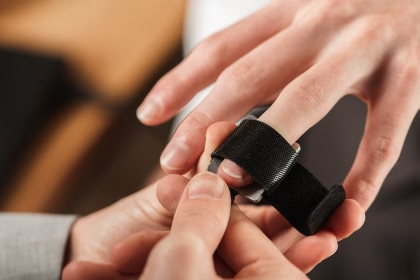The advancement in bioelectrical measurement technologies and the push towards a higher impact of the Brain Computer Interfaces and Affective Computing in the daily life have made non-invasive and low-priced devices available to the large population to record physiological states. The aim of this study is the assessment of the abilities of the MUSE headband, together with the Shimmer GSR+ device, to assess the emotional state of people during stimuli exposure. Data were thus collected by a PC running iMotions (iMotions, A/V), a data acquisition and stimuli presentation software.
Twenty-four pictures from the IAPS database were showed to 54 subjects and were evaluated in their emotional values by means of the Self-Assessment Manikin (SAM). Using a Machine Learning approach, fifty-two scalar features were extracted from the signals and used to train 6 binary classifiers to predict the valence and arousal elicited by each stimulus. In all classifiers we obtained accuracies ranging from 53.6% to 69.9%, confirming that these devices are able to give information about the emotional state.







